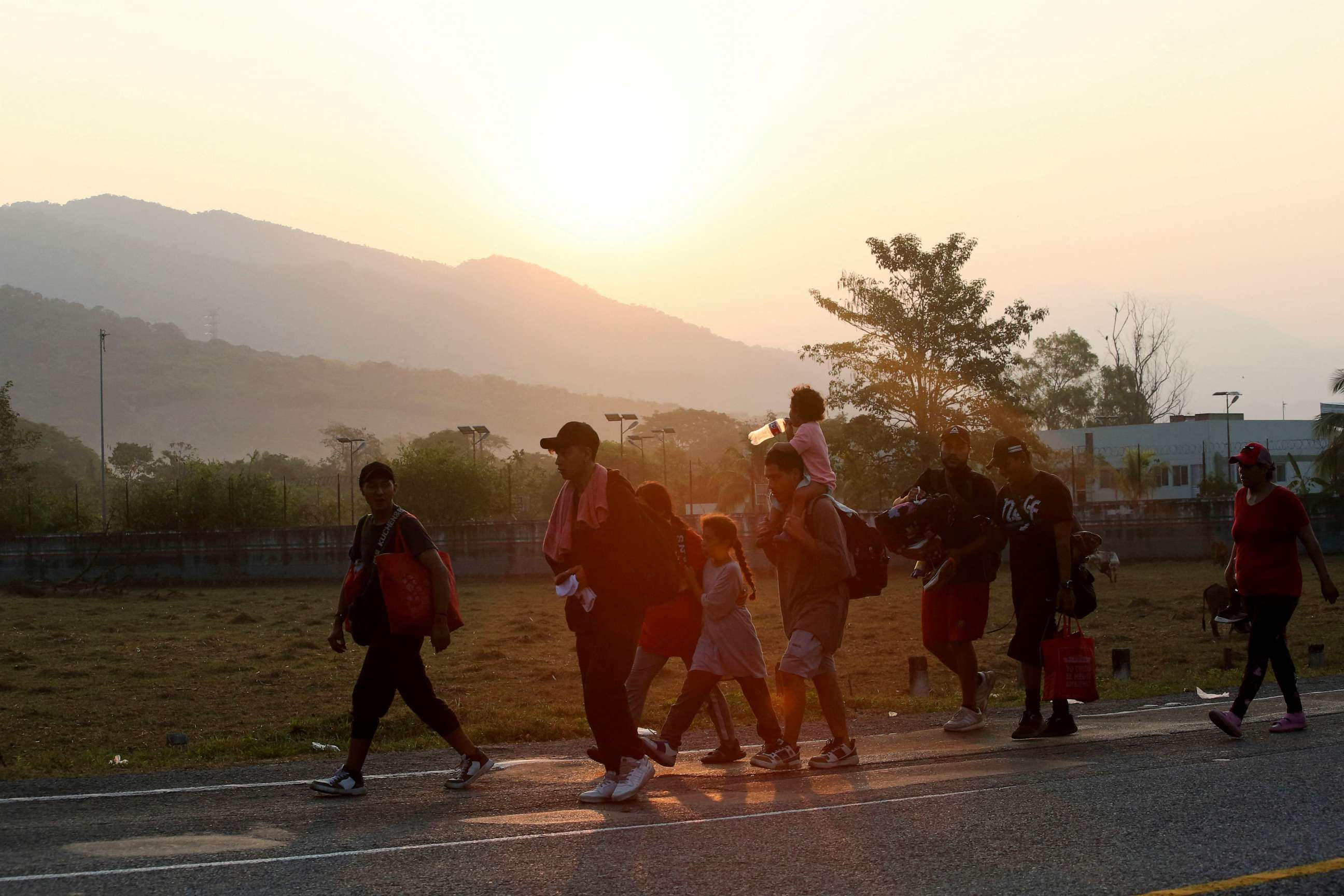US, Mexico reach migration deal as Title 42 deadline nears
Title 42 restrictions, put in place during the COVID pandemic, are set to end.
President Joe Biden's administration said it's reached a critical agreement with Mexican officials to address the "humanitarian situation caused by unprecedented migration flows" as Title 42 restrictions end.
After U.S. Homeland Security Advisor Liz Sherwood-Randall met with Mexican President Andrés Manuel López Obrador on Tuesday, Mexican officials confirmed they will continue to accept migrants from at least four countries who are sent by the U.S. back across the border.

The move comes after the Biden administration had announced a series of actions, including deploying U.S. troops to the southern border, adding new pathways to legal status in the U.S., and tightening restrictions on who can apply for asylum, ahead of the scheduled end of Title 42, as COVID-19 border restrictions have been known, on May 11.
Tuesday's update amounts to a big step forward -- a "seismic" shift, in the words of one analyst -- that's expected to give the Biden administration a tough enforcement tool to not only expel migrants, but also act as a deterrent for more to make the journey north.

A sharp increase in migration to the border had been expected as the restrictions, which have been in place since 2020, expired.
As Title 42 wound down in January, the Mexican president agreed at the urging of U.S. officials to accept up to 30,000 migrants from four countries -- Cuba, Haiti, Nicaragua, Venezuela -- each month, because the Biden administration agreed to accept the same number from those countries through a parole program, where migrants had to apply from overseas and have a U.S.-based sponsor.
The new agreement will continue that effort beyond the emergency authorization that came from Title 42.
"The status quo on the ground won't change much, but from a legal perspective this is as SEISMIC shift," Aaron Reichlin-Melnick, policy director at the American Immigration council, said on Twitter.
He added, "At no point in US history has there ever been another country which would take large numbers of deportations from the US of people who aren't nationals of that country."

Homeland Security Secretary Alejandro Mayorkas had hinted at a deal last week, telling reporters Thursday: "We will continue the successful processes we announced in January ... The Cuba, Haiti, Nicaragua, and Venezuela parole processes, as well as the corresponding returns to Mexico for those without a legal basis to remain will continue."
It was unclear how Tuesday's announcement might affect migrants travelling from other countries, including El Salvador, Guatemala and Honduras.
A joint statement released on Tuesday echoed Mayorkas's comments, saying, "Today, the United States committed to continue to welcome individuals from Cuba, Haiti, Nicaragua and Venezuela under our parole process. For its part, Mexico will continue to accept back migrants on humanitarian grounds."



